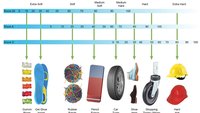
Bad Break-Ups
Sponsorship season has come and gone for pro mountain bikers. As usual some riders have swapped brands, but this year it feels like something is missing. Lately I’ve noticed that other ‘action sports’ seem to do a good job with the farewell edit; a vid that caps off a rider’s tenure as a sponsored rider with a company. In BMX it appears this is becoming a tradition, and that got me thinking.
How mountain biking compares to other sports isn’t actually important; what’s clear is that if our industry embraced a public high five when an athlete moves on – instead of the Irish Goodbye we’ve gotten used to – athlete, brand and fans could all benefit.
Adrian Montgomery has held long tenures at both Cannondale and Scott, and he’s currently a Director for bike clients at Verde PR. I asked him about the utility of the fond farewell;
I am a big fan of the classy sendoff. I think it caps the professional partnership between athlete and brand. When I was at SCOTT we produced a little ‘goodbye’ edit with the Coastal Crew. It can be somewhat bittersweet but the sendoff is a final piece of content that can be attributed to a sponsorship before you move on. You want consumers to feel like your brand has class so they are confident in purchasing from you.
It’s pretty clear that both sides can benefit from celebrating what the brand and the rider have accomplished together. So why is it so rare?
Bad Blood
There are plenty of stories about riders getting ditched by their sponsors for bad behaviour. It’s particularly tough to keep secrets when the misdeeds happen at Sea Otter (stealing a moto for example) or Interbike. You have to behave pretty badly to shock Vegas, and the incident I heard about involved a rider showing up to the Sands Expo hall drunk, first thing in the morning (well within the rules of Vegas). The line was crossed when the drunkenness lead to poor form, loudly executed, right where the brand was launching new bikes for dealers. Being incommunicado for months on a bender, using the sponsor’s credit card, is generally frowned upon as well.
When things go sour it’s pretty easy to see how putting energy into some kind of sendoff gets shelved, but if the public doesn’t know about the infraction (even if the industry does) doesn’t it still make sense to celebrate the shared victories?
Workload
When riders leave with nary a peep it’s easy to assume the worst. Geoff Gulevich recently left Dakine after a long and seemingly productive relationship. Gully was often the man in the catalogue and in their ads, but when he went to IXS there wasn’t a press release, and certainly no farewell edit. Knowing Gully and some of the folks at Dakine, bad feelings are pretty unlikely, so it’s clear that other factors can derail the public sendoff.
Wade Simmons pointed out that marketing staff in the bike industry are almost all overworked. “These guys are busy, they wear too many hats, and sometimes riders are pretty low on the totem pole. We aren’t sales. We don’t bring cash in, so other things take priority.” For all but the largest companies, athlete management is run off the corner of a marketing staffer’s desk, with producing and buying ads, managing the web site, dealing with social media and announcing product, all taking higher priority. Riders can simply fall victim to limited bandwidth.
The Slow Deal Train
Contract negotiations almost always begin in the fall, as the end of year deadline looms. Andrew Shandro is a sponsored athlete but he also helps manage Trek’s C3 riders, so he knows both sides of this equation; “A lot of it comes down to timing. You think they are going to get it done in two weeks but it takes six.” After January 1st, once the athlete’s new contract starts, the outgoing sponsors can no longer promote that rider. That farewell edit is off the table.
Big Business
For bike companies that have been swallowed by larger concerns, personal relationships can be sabotaged by the number crunchers at head office. Riders used to speak directly to the person who could make the call on their deal, but that is becoming less common. Adrian Montgomery explains;
We live in the direct response marketing age, and the CFO is the new CEO. Companies want to see ROI; Brand lift from sponsoring, direct traffic from athlete’s website, social community growth and engagement from athlete, and on and on… The finance guys want to know how to plug an athlete into a “spend X, get Y” equation. Many of the big companies don’t get sports marketing. They need cut and dry metrics and none of this performance based valuation. It’s just how the business is run.
It’s hard to imagine riders lining up to help praise an outgoing sponsor if they feel they’ve been treated like an expendable line item.
Everybody Hurts
It’s not easy when a sponsorship ends. I know this from experience on a much smaller scale. As Adrian says, “It’s a breakup, pure and simple. Breakups are hard. Both sides have feelings mixed up in the relationship. Sometimes those feelings aren’t all warm and fuzzy.” Bruised egos don’t inspire going away parties. ‘Conscious Uncoupling’ didn’t even work out for Gwyneth and Chris, so maybe we shouldn’t expect much from a bunch of knuckle dragging mountain bike riders? (I proudly count myself as a member of this club).
With so many obstacles it seems that celebrating an outgoing rider is actually a remarkable feat, so I tip my hat to the few examples I know of; Scott’s aforementioned Coastal Crew edit, Mavic’s Merci vid with Jérôme Clémentz and Specialized’s Sam Hill tribute. Watching these it becomes clear how valuable these messages are.
Maybe this sentiment is misplaced, but something about our sport, and the people who participate, makes me expect more, and want more. I feel like mountain bikers should raise ourselves to a higher standard. Putting some extra effort into a fitting tribute would be one step in the right direction. These riders put their bodies on the line for their sponsors, and for our entertainment; it seems only fitting to acknowledge that with a public thank you.
We all know they are cooler than us, but now it appears bmxers can teach the mountain bike industry some lessons about maturity as well.







Comments
Straw
9 years, 1 month ago
HI Cam, enjoyed the read. I remember a similar article you wrote probably a number of years ago now. In it, you admitted that NSMB didn't always send off your riders properly either, and you used Michelle Dumaresq as an example. Maybe worthwhile to mention it again?
Reply
Amanda
9 years, 1 month ago
Very, very good write up. It's an interesting topic, this one, and one that can smart a bit… Non-performance (or perceived non-performance) from the companies side, dissatisfaction from the riders' side or a single reason from the myriad of choices for dissolution; we should always say 'adios'. Watching (or experiencing) these partings, it's always interesting to see who has made their riders a priority and who hasn't, and the rider's success post-breakup.
However, as always, it's just an assumption of what went on unless we're part of the situation. Well done, Cam.
Reply
Jamie Hamilton
9 years, 1 month ago
Great article and good topic! Remember one of the great things about being a mountain biker is that sense of community and shared positive experiences. We are an interesting lot. All of us enjoy the solo rides as much as the group missions. Companies and riders that are tuned to the basic motivations of our sport, are the ones who truly build life long loyalty with their customers. Personally I believe it is common courtesy for sponsors and riders to acknowledge their partings to the mtb audience. The very act of manners and mutual respect will go a long way in building that solid value base we all aspire to in our riding community. Rant over now go ride your bikes! And let's all be respectful out there people.
Reply
kingmakersgroup
9 years, 1 month ago
The send-off is invaluable. Old rushes can't take that long to edit into something useful. Perhaps the owners of some of these brands should be considering lifetime value of customers & not just vanity metrics…
Reply
Please log in to leave a comment.